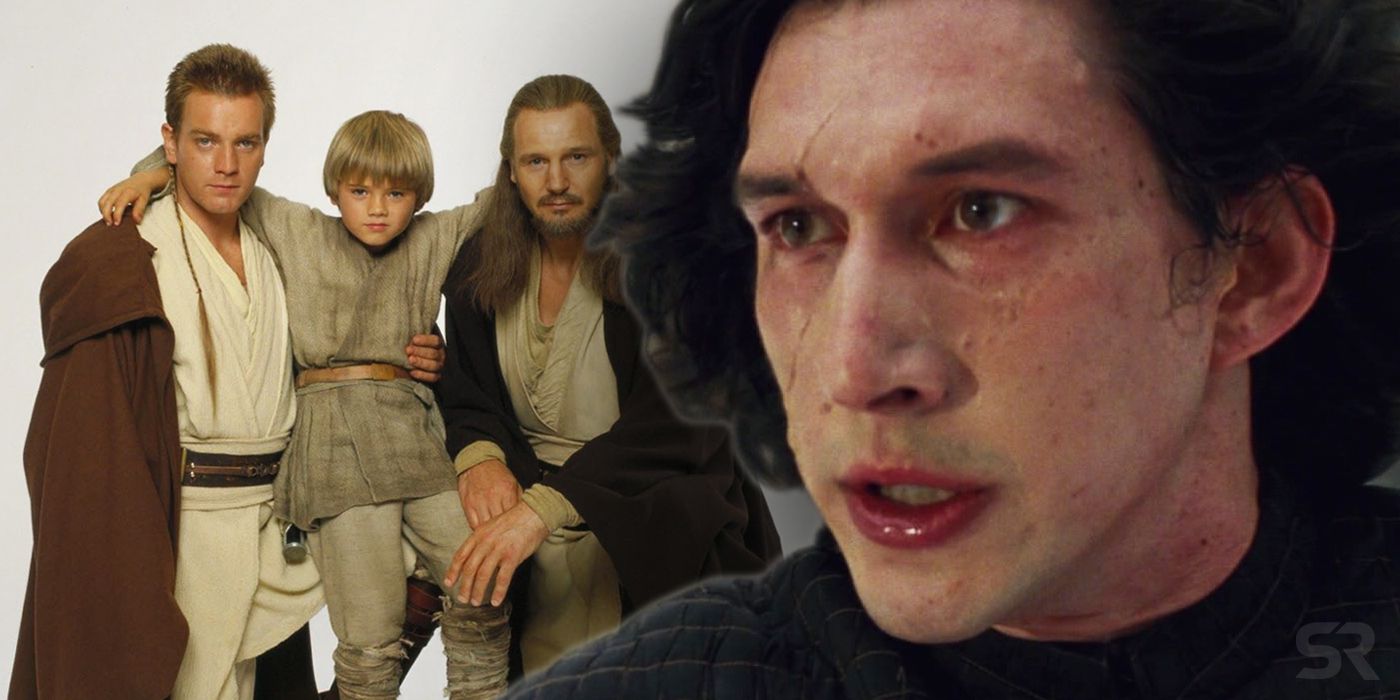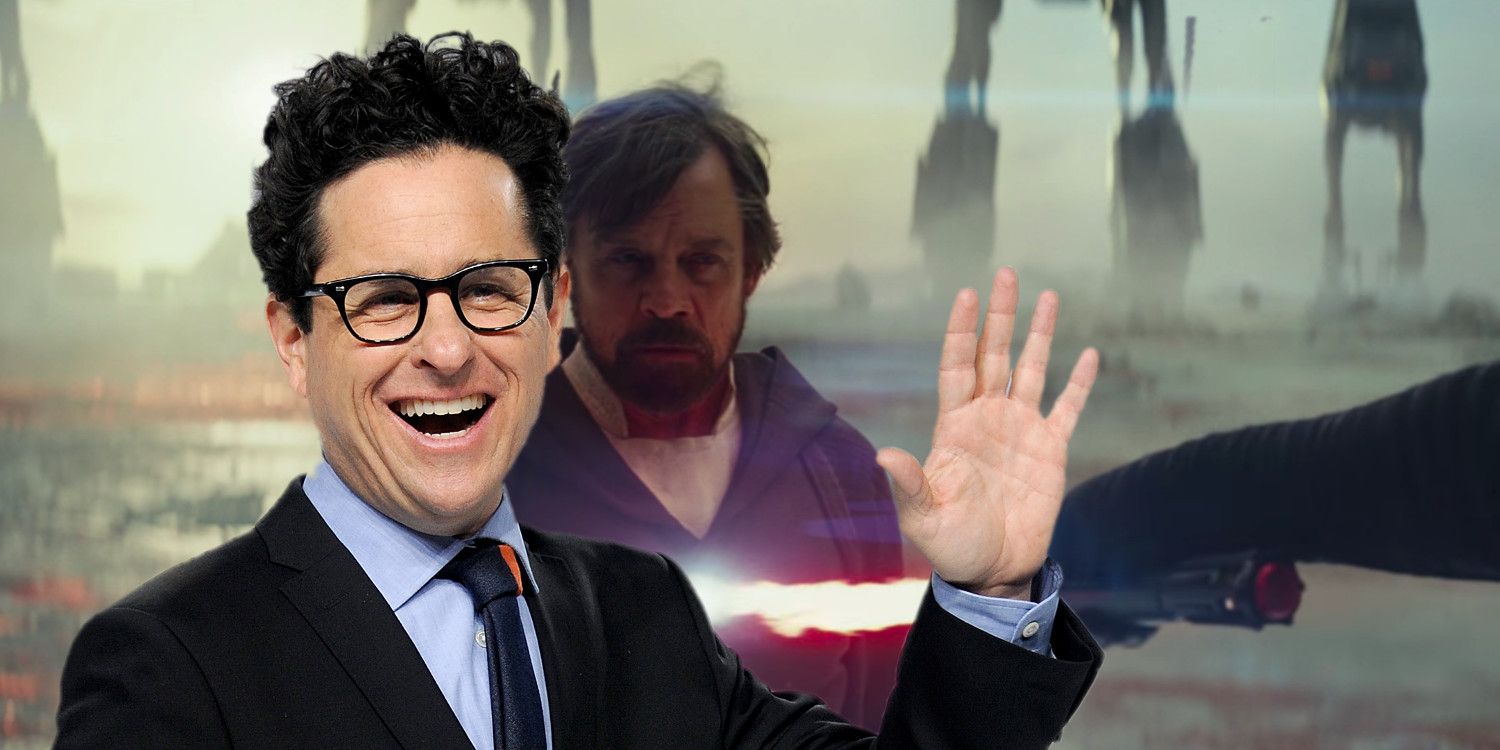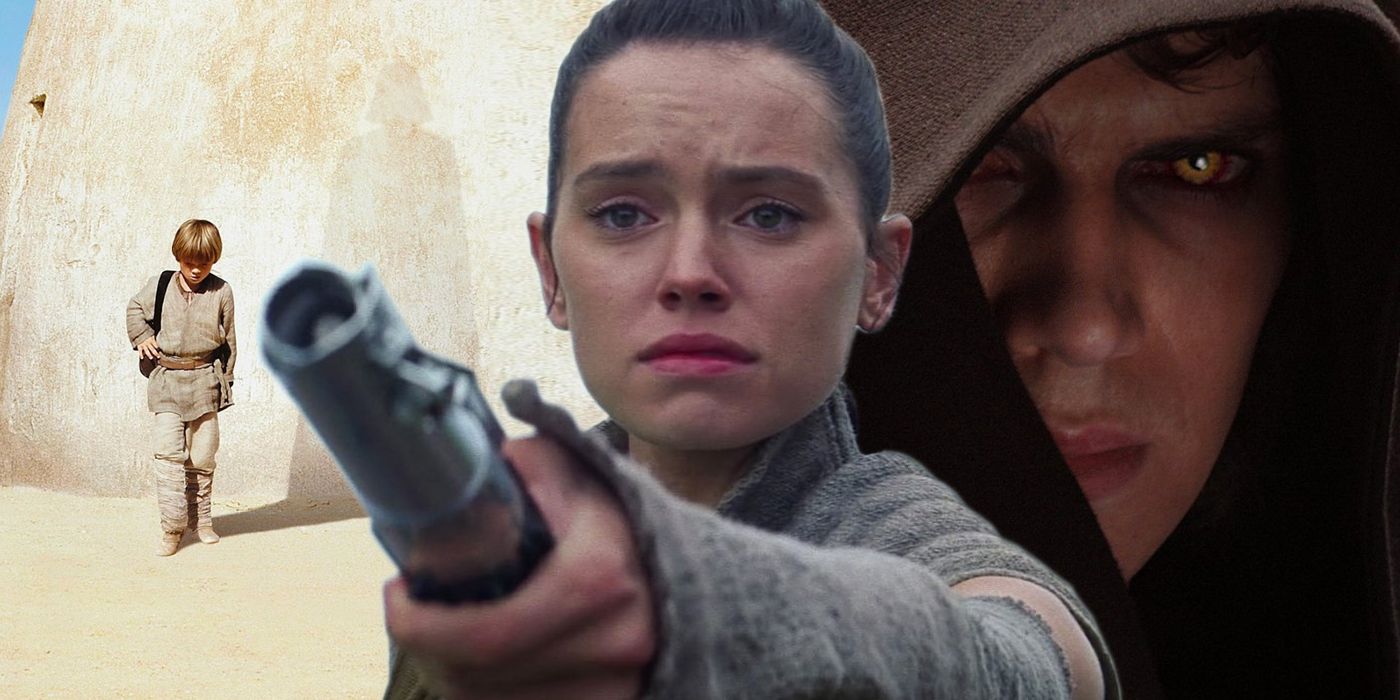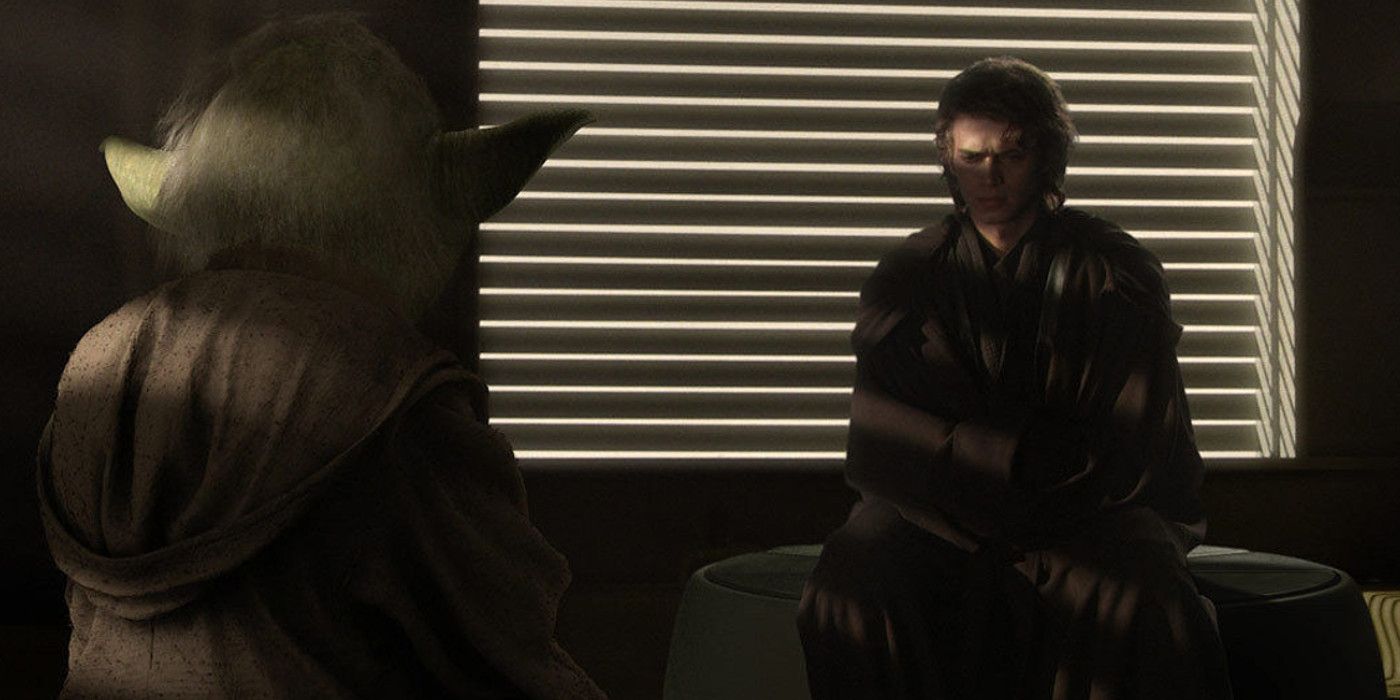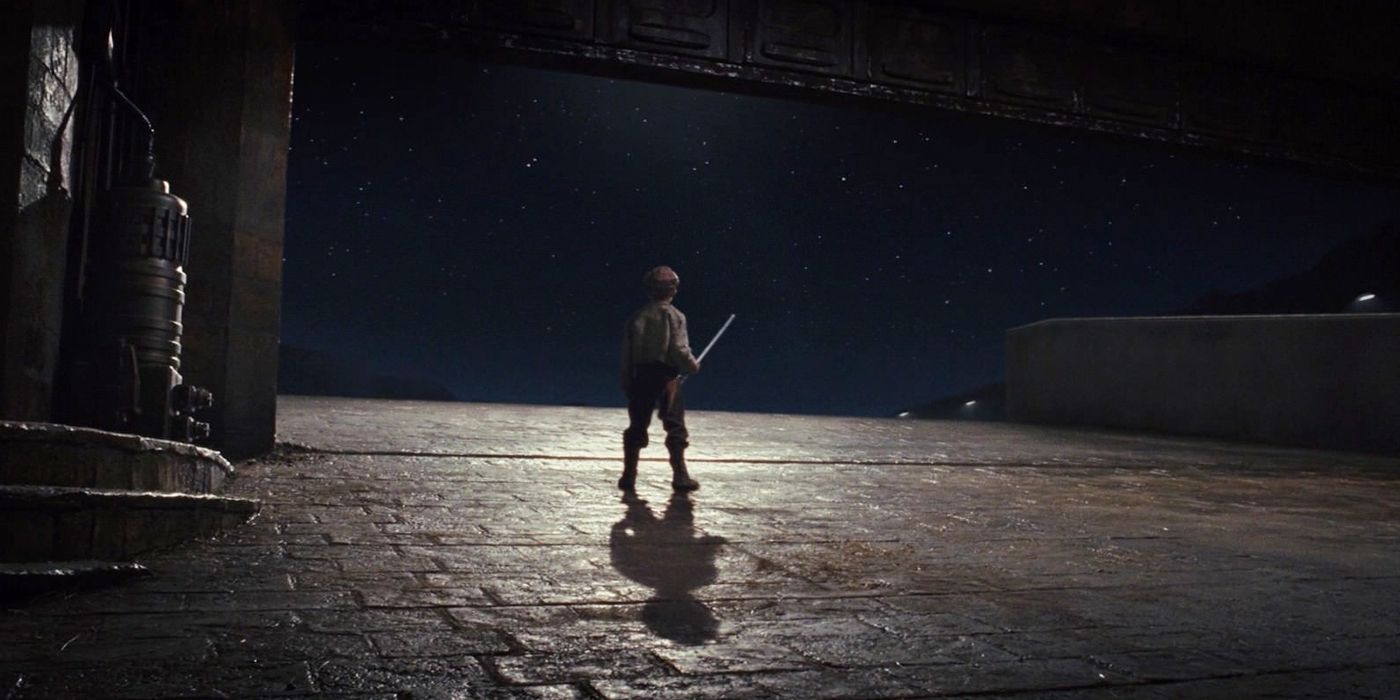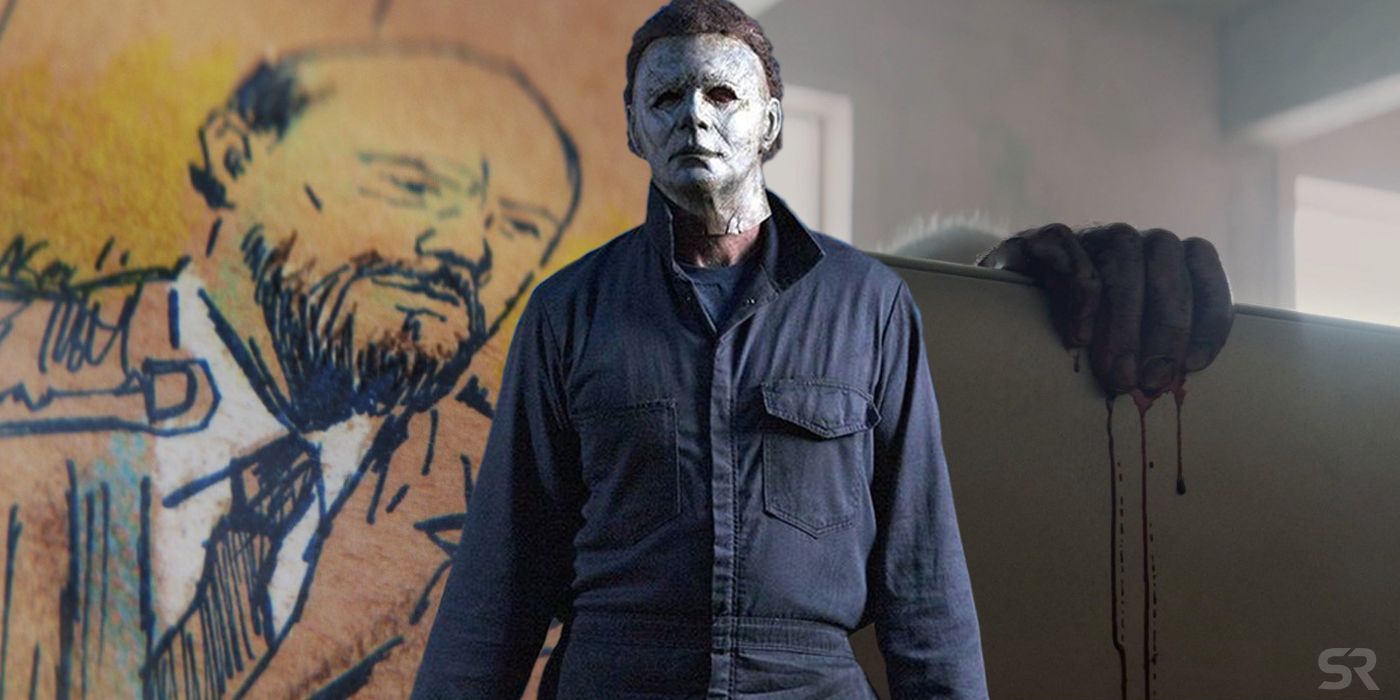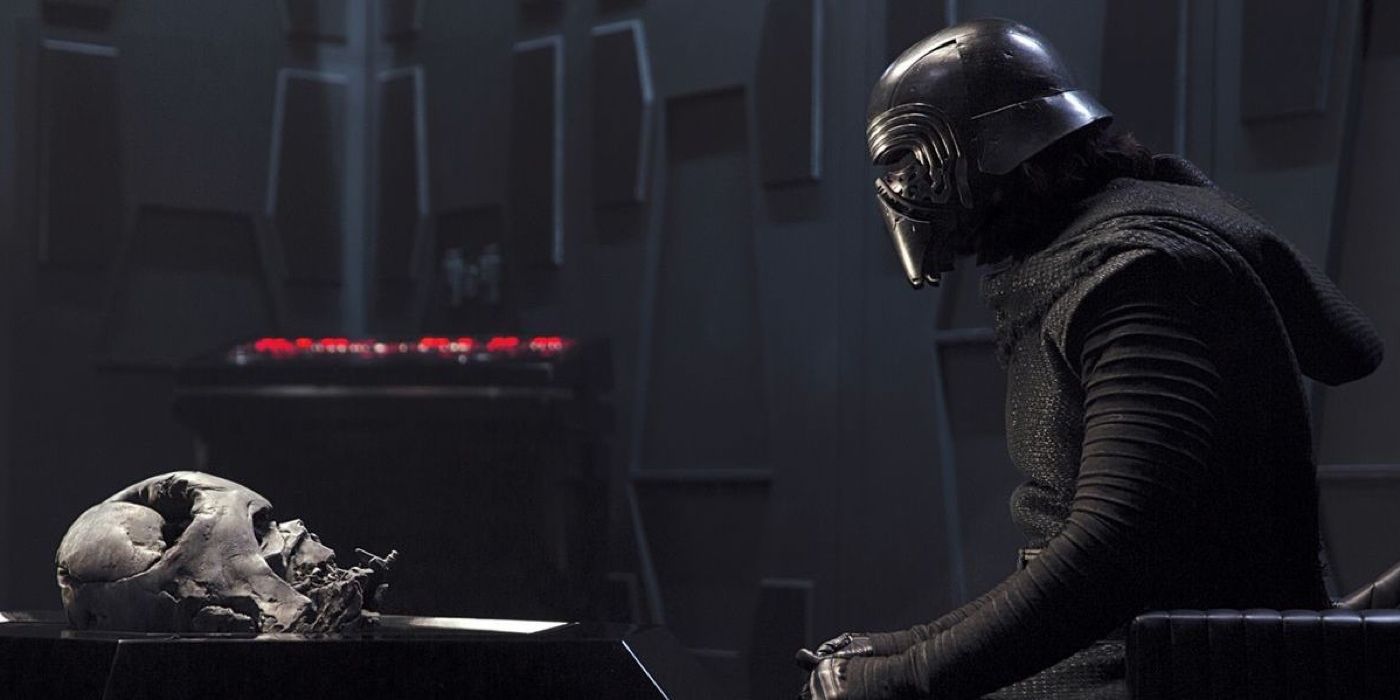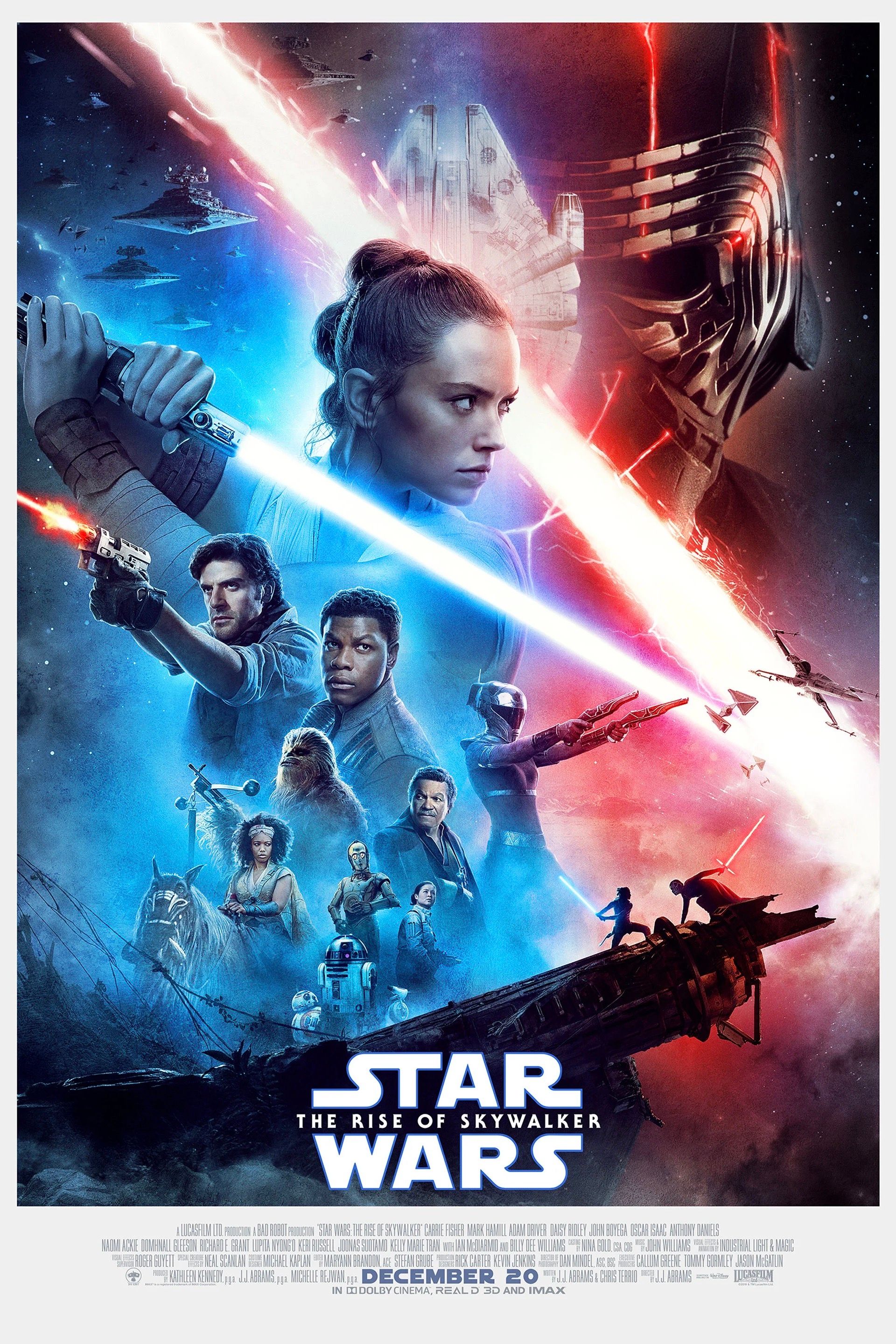Pockets of the Star Wars fandom are expecting a desperate Lucasfilm to retcon the most controversial parts of Star Wars: The Last Jedi out of existence with Star Wars 9, but it's pretty safe to say that won't happen. After all, you only need look at how Disney handled the much more roundly reviled Star Wars prequels in their new canon.
Star Wars: The Last Jedi released almost eight months ago, but we're still very much in the first wave of debate over Rian Johnson's continuation of the Skywalker Saga. Like the Resistance and First Order at the heart of the new trilogy, conflict is locked in a stalemate of unclear balance; complaints and defenses over all aspects of the film - from the recharacterization of Luke Skywalker to the balance of bathos - have become more crystallized in that time, yet reevaluation from either side is a long way off. What is unavoidable from wherever you sit, though, is that the mood around the continuation of Star Wars has certainly changed.
Related: Star Wars Becoming Divisive Is a Good Thing
Of course, it's like poetry, it rhymes. Like the Resistance and First Order are echoes of previous Galactic forces, so too is this debate; it may take place in a new age of the internet over a shorter period of time, but Star Wars has been here before, with audiences equally irate and divided by the prequel trilogy. And that's also true of the expectation that Lucasfilm will, in some narrative form, attempt to overwrite Star Wars: The Last Jedi.
- This Page: Star Wars 9 Isn't Retconning The Last Jedi
- Page 2: What Disney's Handling Of The Prequels Reveals
- Page 3: Why Star Wars Won't Retcon Any Of Its Movies
No, Star Wars Isn't Retconning The Last Jedi
Although a handful of extreme fans have floated doing a complete remake of Star Wars 8 that overrides Johnson's version, in most cases the suggestion to "retcon" Star Wars: The Last Jedi comes in the more classical sense: to retroactive change the story. Many are looking for clues or theorizing plot turns that essentially sidestep the defining aspects of Lucasfilm's released movie. The problem with all of these cases is that the evidence is non-existent.
Basically, any development in J.J. Abrams Star Wars 9 is coupled with the suggestion that it's been done to address complaints from or alter the narrative of The Last Jedi. Most recently, the return of Billy Dee Williams as Lando Calrissian, Mark Hamill as the (now dead) Luke Skywalker and repurposing of Star Wars: The Force Awakens footage to bring back the late Carrie Fisher as Leia has been cited as an attempt to placate the fans, but each is separate from The Last Jedi: Abrams pitched his story for Star Wars 9 to Disney the day the previous film released, with no time for any backlash influence (on a related note, Johnson's script was written before Star Wars: The Force Awakens, meaning he was likewise not responding to mystery box expectations). Luke's return is hardly unestablished by Johnson, while the reuse of Fisher's footage was surely on the cards for a long time.
There's also the inexplicably lingering question of Rey's parents, which Johnson answered pretty resolutely in The Last Jedi: they were no one. This was evidently unsatisfying to some due to the barrage of theories regarding the scavenger-turned-Jedi's parentage that originated from before Star Wars: The Force Awakens' release. This, despite the fact Abrams dropped no clear clues and stated pretty resolutely by "The belonging you seek is not behind you. It is ahead." That's right: Abrams' movie most overt addressing of Rey's parentage is the same conclusion as Johnson's, with the only thing suggesting he had anything more planned being a vague statement from Simon Pegg. The current situation expecting Keri Russell or a canon-impossible Qi'ra to be a shock-reveal mother isn't dissimilar to the debate of whether Vader lied to Luke in 1980.
Read More: Star Wars 9's Casting Isn't Correcting The Last Jedi
But while these are examples for a far-off movie, you can already see the suggestions of a retcon in the reaction to current materials. The Star Wars: The Last Jedi comic adaptation is a pretty straight telling of the movie's events, with added internal monologues for some of the more pensive scenes; this includes extended dialogue on Luke's exile and Leia's Force flight. These cases are all extensions of the screenplay, yet some fans and outlets have claimed they're evidence of Lucasfilm changing the story (something writer Gary Whitta has roundly rebuked).
Plainly, there's nothing to support the suggestion of any degree of Star Wars: The Last Jedi retcon. And why would there need to be? After all, we've already seen how Disney-era Star Wars handles controversial topics...
Page 2: What Disney's Handling Of The Prequels Reveals
How Disney Handled The Prequels
While George Lucas was evidently deeply affected by the backlash to his Star Wars prequel trilogy - to the point it was a key motivator in him selling Lucasfilm to Disney in the first place - he never went back on his belief on them. Many of the original Star Wars generation didn't respond positively, but he achieved his goal in telling a tale of the dogmatic Jedi blinded and undone by a corrupt force within the galactic political system, and didn't step back from it; his efforts before the Disney sale were on The Clone Wars, set between Attack of the Clones and Revenge of the Sith, and other media that explicitly connected the two trilogies.
When Disney took control, it was expected by many who'd played a part in that backlash the company would explicitly distance themselves from the prequels; if not striking them from Star Wars canon then having the original trilogy serve as the unofficial "Year Zero" of the franchise going forward. However, while Star Wars: The Force Awakens certainly leaned into OT ephemera - from the focus practical effects in the promotion to the plot retread of A New Hope - it was immediately clear with notes of clone armies that things weren't forgotten.
Related: When Did The Star Wars Prequels Become Cool?
In the three-or-so years since, we've seen a lot of aspects reappear. Star Wars Rebels became a direct continuation of The Clones Wars; Star Wars Battlefront II included all three eras with similar prominence; Solo: A Star Wars Story had a cameo from Maul, a character best known for The Phantom Menace, and a key part of Luke's fall in Star Wars: The Last Jedi was disenfranchisement with the Jedi as presented in Episodes I-III. On the fan side, the cries for an Obi-Wan Kenobi movie are literally an extension of Ewan McGregor's work in those movies.
The prequels never really went away. Even if you want to make that argument they were silenced, the films were only ever just out of frame, waiting for the new era to win over all creed of fans - specifically those equally vocal and hard-to-please - before having it as just another key aspect in the series. Disney Lucasfilm never retconned or removed the prequels, keeping them as narratively sound as they were in the early-2000s. And why would they do anything else?
Fans Accepted The Prequels More Than They Even Realized
Star Wars is best when it continues onward. So much of the confused reaction to every movie since the 1977 original (remember, there was a time when The Empire Strikes Back was viewed as the weakest of the original trilogy) comes from a culturally-muddied view of what Star Wars is, something that changes with time. Indeed, the movies may not be the most beloved, but the mythological impact of the Star Wars prequels is remarkable. Midichlorians aside (which really weren't that different to "strength" in the Force), so many ideas raised in this movies are integrated without many even realizing: formal Jedi structure (including Padawan and the Order's celibacy), Palpatine/Sidious' name, Sith propensity for red lightsabers, the rule of two (for both sides), the clones as Republic soldiers (and genetically-engineered stormtroopers at that), and the notion of "balance in the Force" all came from Episodes I-III.
These things are accepted by fans and by Lucasfilm, to the point Mark Hamill summarizes the events in Star Wars: The Last Jedi without pause. The nature of the saga's connected storytelling means once something is in circulation it can come back in various ways.
Related: Star Wars Fandom Has Finally Got Over The Prequels - Thanks To Disney
We're already seeing this with the sequels. Many aspects - like Han and Leia's son falling to the dark side or a resurgent Empire - were already previously-established in the Expanded Universe, but key elements introduced by the movies themselves - not least the core characters - are already a new norm for the sequels. More controversial elements - Luke's death and Rey's parents chief among them - will follow suit. Once again, we've been here before and know the knee-jerk reaction abates over time.
Ultimately, The Last Jedi Took The Franchise In The Right Direction
All this said, everything in the discussion so far ignores a bigger fact. It's easy to say that if the prequels were respected, then why would Disney want to alter Star Wars: The Last Jedi, but by even comparing the two we're doing the latter a disservice. While Episodes I-III have their fans, few would hold them up alongside the original trilogy (for good reason - as interesting as the story Lucas tried to tell is, his execution was off). In contrast, The Last Jedi is roundly praised, with strong ratings in all common metrics and good post-theater sales. It is compared to the originals directly, and doesn't depreciate from that. To suggest a retcon of Episode VII is to suggest a prioritizing of those who dislike the movie over those who do.
The question of that negative audience's importance is also up for debate - they may be light consumers - but the controversy around Star Wars: The Last Jedi also hides that, again regardless of execution, its big steps move the franchise in the direction needs it to. Star Wars as a series of episodes following the Skywalker clan has an expiry date - moving past Darth Vader already risks swapping space opera for soap - and so the film's wider scope and deconstructive lens serve to expand was Star Wars can be. The final scene alone, with the legend of Luke Skywalker looming large over a new, entirely disconnected generation is representative of how the various new movie series, TV shows, games and more are envisioned to step into a grander mythological world.
Clearly, there's something that's struck wrong with a portion of the audience in doing this, but winning them back needn't require something so direct - Solo: A Star Wars Story highlights branding and story justification problems that run deeper than any one film - but this bigger picture is unavoidable.
Page 3: Why Star Wars Won't Retcon Any Of Its Movies
Retcon Movies Are Coming To The Mainstream
The retcon discussion is going to get much more pronounced in the coming years, not just for Star Wars but every franchise. Whereas over the past decade we've seen the rise of legacy-quels - late-in-the-day sequels that continue an original story, such as Tron: Legacy, Creed, Blade Runner 2049, and, yes, Star Wars: The Force Awakens - that group is shifting to involve direct retcons: removing later, typically unpopular movies from a new "canon".
We saw this surreptitiously with Jurassic World (which sidestepped the first two sequels) and Mad Max: Fury Road (which had the loosest continuity possible), but it's going to become concrete in the next couple of years with Halloween (a series now on its fourth continuity, this time ignoring all but the first movie), Terminator 6 (skipping every non-Cameron movie) and Robocop (where Neill Blomkamp, who started this line of thinking with his Aliens sequel, goes back to just the first movie).
Related: Now The Alien Prequels Are Dead, Fox/Disney Should Make Blomkamp's Reboot
In all cases, the justification has been narrative, which is somewhat fair; each movie had sequels that overly complicated the story (incest cults, nuclear annihilation and jetpacks respectively) and make doing anything else new tricky. However, what's unavoidable is how fan-pleasing each enterprise is, removing the conventionally disliked movies to do a new continuation of the original classic. This style of storytelling isn't new - when Blomkamp first suggested his Alien 3 with Ripley and Hicks, he was touching on a well-worn area of fan-fiction - and is only natural when you have fans creating new stories (or original creators returning) but it's unavoidable that it comes from a desire to above-all appease the fanbase.
Why Star Wars Isn't A Franchise For (Movie) Retconning
But if Halloween "2", Terminator "3", or Robocop "2" make it seem like mainstream audiences are opening up to retcons just as the Marvel Cinematic Universe normalized intense attention to comic book continuity, it may be worth taking a step back. Today, those later sequels are lesser-seen, so going back to the original movie alone also creates an easy entry point in an era when knowing what came before is important that bit easier.
Already, you can see that this method wouldn't apply for Star Wars, where the record-breaking movies are more widely-seen by general audiences than they are disliked by the intense fandom (who don't really impact the box office anyway, although the ratio is even lesser for Star Wars when factoring in the dominance "casual" fans). The "remake the prequels" suggestion that is occasionally bandied around offers little, so too does meddling with the events of The Last Jedi. Star Wars is a different sort of series. It's got greater purpose in its continued existence, and while that may be sanded away slightly by a lack of a clear plan, it doesn't change the galactic scope of the future.
Now, for completion, that's not to say Star Wars history is free of retcons. The Expanded Universe was a myriad of contradictions and story changes caused by the sheer wealth of overlapping material, but that's part of the reason one of Disney-owned Lucasfilm's first moves was to render it non-canon Legends; one massive continuity change to bring ongoing consistency.
Related: Star Wars Just Made Old Legends Details Canon
Of course, what most will point to is George Lucas' ever-changing versions of the original trilogy, with the 1997 Special Editions, 2004 DVD release and 2011 Blu-ray release. However, invasive as they can be, these alter feel more than story: the CGI, the added scenes, and other touch-ups rarely see narrative changed. Indeed, that most of the controversy hinges on whether Greedo got off a shot before Han in the Mos Eisley Cantina shows the interpretative nature of most of the character shifts. Even Hayden Christensen in Return of the Jedi, as aggravating as it may be to many, is hardly altering the mythology. After all, Lucas defended all changes by saying they were as the movie initially intended, achieving what wasn't possible in the 1970s and 1980s. The truth of that is debatable, but even in these changes, there's the treating of prior movies as sacrosanct.
-
This entire discussion comes from a sense of intense ownership of the property to the point it actually overrides the content. One of the Star Wars: The Last Jedi's most quoted lines is "let the past die, kill it if you have to", often taken as a summation of Rian Johnson's subversive intent. However, it's really only half the story: that's the ethos of a villain who is ultimately incapable of following it (he lets the Resistance escape to toy with his uncle), while our hero learns to accept the future while building on the past. Whichever side of the debate you find yourself on, it's clear what the best way forward is.

